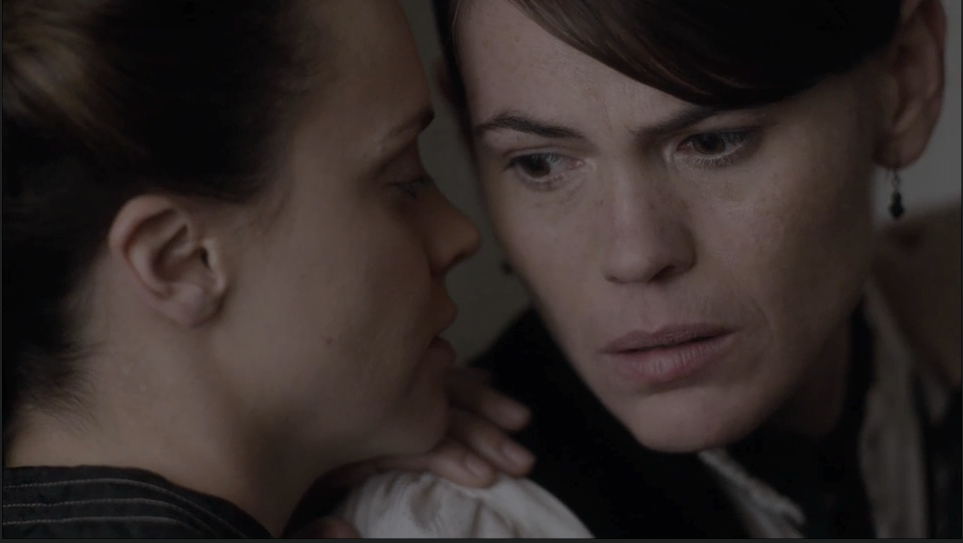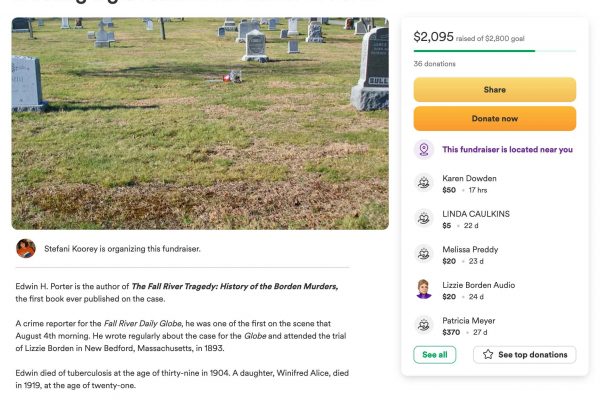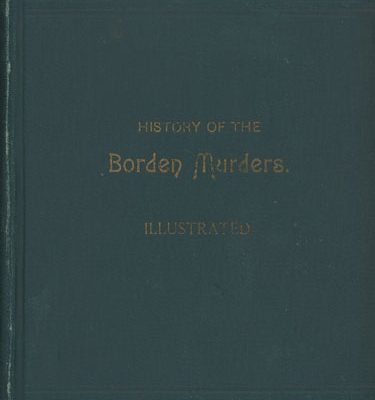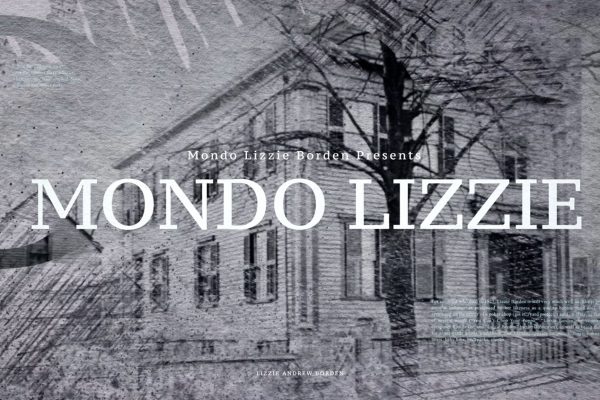
Lizzie Borden Took an Axe: A Review
While I may have become, through time and intensive study, some sort of an expert on the Lizzie Borden murder case, I am first and foremost a theatre professional. My training and education is primarily in this subject—as a teacher, professor, storyteller, and practitioner. I am always eager to see a play, musical, opera, ballet, one-act, scene, or film that uses Lizzie as the theme, whether she is the main subject or not, and whether the production is amateur or professional.
I really only have one rule–self-determined rule–and that is the work MUST be true to itself. If I read nonfiction, I expect and demand historical accuracy as that is how the genre is defined. But a work of entertainment must only make sense in itself. I do not hold them up to the same standards as history, nor do I expect them to get everything right. I let the work do what the work is written or designed to do—and if the writer/designer/artists/choreographer/playwright/improv group decides that to their work Lizzie Borden will be written as guilty, then I am not upset even though I believe her to be innocent.
In other words, I don’t let my knowledge of the truth and facts of this case to get in the way of the creative work I am witnessing.
I have seen some really stunning works of theatre about Lizzie Borden, one-woman shows like Jill Dalton’s Lizzie Borden Live, Steven Cheslik-Demeyer, Tim Maner, and Alan Stevens Hewett’s Lizzie (a rock opera), and David Foley’s play Nance O’Neil.
The closest to the “truth” of the story of Lizzie Borden is Jill Dalton’s, but that doesn’t make it better or more worthy of a positive review because it is more factual. All of these plays work because they make sense, in and of themselves. They are self-contained plays that are entertaining—a must for any work of theatre.
This preamble to my review of Lifetime’s Lizzie Borden Took An Axe is important if you want to know what I think and why I think it (why anyone would want to know this, I have no idea).
I liked it. I liked it more than I thought I would. And I respect what it was trying to do and how it did it.
Of course the costumes were off, the history was convoluted, the dialogue was not accurate, the courtroom scenes were contrived, and major characters were omitted from the film. It was quite obvious to me that the screenwriter Stephen Kay had the 1970s TV film The Legend of Lizzie Borden, starring Elizabeth Montgomery, in his head. He “borrowed” from it a bit: Lizzie kills her father in the nude, there is no John Morse to be seen, etc. I am sure he figured that since the Elizabeth Montgomery film didn’t stick to the facts of the case or the actual look and feel of Fall River and it became a classic, then he didn’t have to either. And he is right to assume that. I would.
Lizzie Borden Took an Axe stands on its own. Others hated the modern music, but in reality, there wasn’t that much of it to bother me and the energy it provided was appropriate. My Lizzie Borden friends (yes, I have friends that I have met because of this case) to a person was upset with this film. They called it “disappointing,” “unfortunate,” “terrible,” and “worthless.” I have no idea why my reaction is so different from theirs.
Maybe it is because I have now seen it twice. The first time was in a public place, the one spot in Fall River that held a Lizzie Borden Took an Axe event (TapHouse Grille on South Main Street). I had a Lizzie Borden martini as well, so perhaps a bit of vodka eased me into the film. There were many TVs on every wall, some with closed caption, but the sound was piped into the loudspeakers of the restaurant/bar and everyone there knew what the night was about. So some of the dialogue was lost to me and I didn’t hear the music at all over the din of the mayor of the city of Fall River chatting with a table of young women and ignoring the story that put “his” city on the map. Oh well.
What I saw last night was a visual representation of the story. Little Christina Ricci was not great as Lizzie, even without hearing her voice. Her wide-eyed Lizzie was a bit too obvious for me, and I think Clea DuVall (who played Emma) and her should have switched roles as Clea was scarier and more imposing than Ricci. But she wasn’t horrible. Her greatest sin was that she wasn’t Elizabeth Montgomery, I fear. Montgomery is the quintessential LB, and this film, perhaps, showed us all that we may not be willing to accept another in her place.
Today, I watched the film again (on my iPad). I could get close to the film this way, pause it when needed, and observe it with a critic’s eye. I chuckled out loud at a few moments and was impressed that the music didn’t ruin the movie. I really liked Stephen McHattie as Andrew Borden, even though he had the wrong beard and wasn’t in the film very long. But he wasn’t one dimensional. He wasn’t the miser or the strictly religious ogre of fiction and some history texts. He was troubled by his daughter. He knew she was a liar and a thief and he had to deal with that. This Lizzie Borden seduced him—not so overtly as to lead to anything untoward, but she was a MANIPULATOR, of him, her sister, the system, and anyone who stood in her way. I found this powerful and completely consistent with the way Kay crafted this telling. It actually harkened back to Lizzie (the rock opera) and Nance O’Neil (the play) mentioned above. If you are going to write a story where Lizzie did it, go for it. And all of these works have done just that.
Ricci’s Lizzie was evil in the end. And the last five minutes of this movie (both without sound and with) is phenomenal. It left me quite breathless, actually. Lizzie whispers her truth into Emmma’s ear and we see the acts played out in quick jump cuts, showing us Emma’s startled reaction while Lizzie holds her face in place so she must hear every word. It was at this moment that I was won over to this telling. And then, to top it off, Ricci gives Emma a kiss on the cheek and lets her go. Astonishing really.
And after watching the movie twice, I am now of the belief that this film wants us to think that Lizzie killed her own pigeons (we do not see who commits the act, but a hatchet is used). This Lizzie seduced her father, not the other way around. This Lizzie smiles as she sips her tea, entitled to the life she has “earned” by her actions.
The ending of the Montgomery movie has Emma asking her if she killed their father and stepmother and Lizzie just stands there. The jump rope rhyme is played as the camera does a 360 around her. She never answers her.
This Lizzie Borden told Emma what happened, in gory detail. Her evil was palpable. Her cruelty toward her sister is sinister.
Yes, this film is full of holes, and has its history all jumbled, and the costumes are funky and not right, and people behave in ways they certainly would not have, but it is true to itself. And what more can we ask of any work of entertainment?







